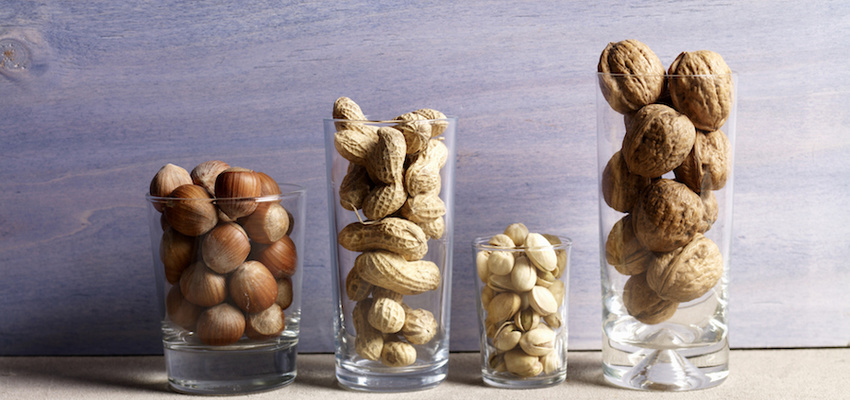10 Reasons To Eat Way More Nuts & Seeds

If I had a dollar for every time I told patients to eat fruits, vegetables, whole grains, nuts and seeds … well, you probably know where this is going.
Why nuts and seeds? What is it about that group of foods that leads to a strong, science-based recommendation? Why do I keep a tin of mixed ground tree nuts and seeds in my fridge to sprinkle on soups, salads and casseroles? The answer is in health and longevity. Here are 10 amazing facts to consider for your diet.
1. Nuts can help with weight control.
In the Adventist Health Study, which examined obesity and metabolic syndrome in more than 800 people, there was a strong inverse relationship between tree nut consumption and developing these medical conditions. Other studies have also shown that eating tree nuts does not lead to weight gain and the high concentration of fiber and nutrients offsets the calories consumed.
2. Nuts may reduce heart deaths in the elderly.
In a larger analysis of the Adventist Health Study examining death in residents over age 84 years old, those that ate nuts >5 times a week had a reduced risk of overall death of nearly 20% and of heart disease deaths a stunning 40%. Of additional interest, the elderly who ate doughnuts had twice the risk of dying of heart disease during the study! It would appear you'd be nuts not to eat some nuts (unless allergic), and truly nuts to eat doughnuts!
3. Walnuts can lower cholesterol.
In a study of 40 subjects comparing a walnut-enriched diet to a control over eight weeks, the walnut diet reduced total cholesterol and the "bad" apoB component. Markers of inflammation and blood sugar were unaffected.
4. Ground flaxseeds lower blood pressure.
In a remarkable randomized six-month study of the effects of 30 grams daily of milled flaxseed on blood pressure, the seeds reduced systolic blood pressure on average 10 mg Hg, and diastolic pressure by 7 mmHg, a substantial reduction equivalent to a medication. In the subgroup that started with elevated blood pressures the average drop in systolic blood pressure was 15 mmHg which is more than expected from a new prescription medication.
5. Flaxseeds may improve blocked arteries.
In a rabbit model, adding 10% flax to a high-cholesterol rabbit chow led to a 40% reduction in plaque development and improved artery function on testing. If this translates to humans, it would be an amazing benefit.
6. Flaxseeds reduced blood sugar and cholesterol.
In an open-label study (when both researchers and subjects know which treatment is being administered) of diabetics, adding 10 grams of flax powder for a month lowered blood sugar and cholesterol by about 15%.
7. Chia seeds raise blood EPA levels.
EPA is one of the essential fatty acids in our diet, and many people seek animal-based sources like fish oil or krill oil. Adding 25 grams daily of chia seeds to the diet of post-menopausal women raised EPA levels by 30% while DHA (another essential fatty acid) levels did not go up.
8. Chia seeds improve markers of diabetes and inflammation.
In a study of 20 patients with diabetes, adding 37 grams daily of chia seeds reduced measures of diabetes, blood pressure, blood clotting and C-reactive protein.
9. Chia seeds may help lower weight.
In a study of more than 30 patients with metabolic syndrome, adding a mixture of nutrients including chia seeds led to weight loss and an increase in adiponectin, a hormone that helps prevent obesity.
10. Sacha inchi seeds could be great for lowering blood pressure and cholesterol.
In a study of the oil of this South American seed high in omega-3 and protein, daily use lowered blood pressure, cholesterol and LDL cholesterol, and raised HDL cholesterol.
When Hippocrates said, "Let food be thy medicine," he have foreseen the massive data that whole food, plant based choices would improve our health, our chemistry and add both life to your years and years to our lives? Unless allergies are an issue, I hope you will regularly include nuts and seeds in your diet for your health.
Photo Credit: Stocksy
Comments
Post a Comment